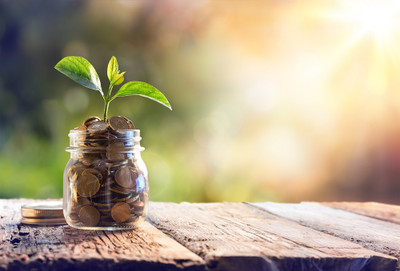Why are glass jars are so environmentally friendly?
Posted by The Wares Team on 24th Jan 2019
Over the past few years, concern has been growing about what we are doing to the planet, and about plastics use in particular. The Blue Planet II series, which aired in 2017, really created a groundswell of opinion about how much plastic is entering our oceans and the devastating effects that this is having on marine life and sea birds. Of course, it’s natural for us all to want to do our bit to help reduce the environmental impact we have on the planet, and even quite small steps can have a cumulative effect in the long term. That’s why, in today’s blog post, we look at why glass jars are so environmentally friendly and at how we can use them to really make a difference.
Why is glass so environmentally friendly?
Whether it’s bottles or jam jars, glass is the ultimate environmentally-friendly material. You can re-use glass jars over and over again, with just a simple clean and sterilisation between uses. Even if you don’t intend to make jams or pickles, you can always re-use glass jars as storage containers to help you get your craft room, spice cupboard or bathroom shelves organised and tidy.
If you have glass jars or bottles that you don’t have a use for, glass is widely recycled across the UK and, before you know it, your recycling has been processed and is back on the shelves, ready to repeat the cycle. With glass, there’s no need to check mystifying recycling symbols and local recycling facilities as there is with plastic.
We’ve all seen TV programmes and social media posts showing the awful effects that plastic can have when it finds its way into our waterways and oceans, with birds becoming entangled and sea creatures ingesting huge amounts of toxic plastic. Whilst, of course, we’d like to think all glass ends up in a recycling bin, the reality is that some glass will perhaps end up in the sea. However, unlike plastic, glass will quickly be broken by the sea and worn smooth by the tides, meaning that it is harmless to sea life.
As you can see, glass has a far better track record than plastic when it comes to environmental concerns. Here’s how to make the best use of glass jars in your home, to help reduce your own environmental footprint.
Make your own preserves
It goes without saying that reducing your food miles is a great way to lessen your carbon footprint and the best way to reduce your food miles is to make it yourself. Whether you grow your own fruit and vegetables, or you want to take advantages of bulk buys and special offers at the greengrocers, making your own home preserves is the perfect way to cut-down on over-processed, over-packaged store-bought items. By making your own jams, jellies and pickles, you’re in control of the packaging and the ingredients, for the ultimate in provenance and food awareness.
Take your own lunch to work
Why not ditch those over-packaged sandwiches from the high-street chains and start taking a homemade salad in a jar for lunch? You can re-use your jar every day and you can decide exactly what you’d like in your daily salad, so there’s an endless variety and you won’t get bored of the same old choice. Make your salad using whatever you have to hand, or grow your own salad leaves, sprouting seeds and other veg. Once again, you’ll be lowering your plastic consumption and your food miles, all in one go.
Make your own yoghurts
When you go to the supermarket, do you ever stop and think about just how much single-use plastic there is in the yoghurt aisle alone? We love a tasty yoghurt as much as the next person, but it’s hard to justify that much plastic for this type of food item. The alternative is to make your own yoghurt, which is easier than you think. Yes, you can invest in a yoghurt maker if you’re serious about it, but it’s not necessary and you can get great results without one. You will need to start with some fresh, natural yoghurt, but once you’re up and running making your own, you can use what you have as the base for the next batch. Flavour your yoghurts with jam, honey, fruit puree or anything else that takes your fancy.
Make your own cosmetics and bathroom products
Another area in which we all use a lot of plastic is in our bathrooms, with most cosmetics and toiletries coming swathed in plastic. If you’d like to ditch the plastic and switch to more natural alternatives at the same time, it’s easy to make your own. Start simple with something like DIY bath salts and then experiment with hand cream, moisturiser and face masks. All of these can be stored in jam jars and other glass containers, for the ultimate low-impact switch to a more sustainable, environmentally-aware approach to how we live our lives.


